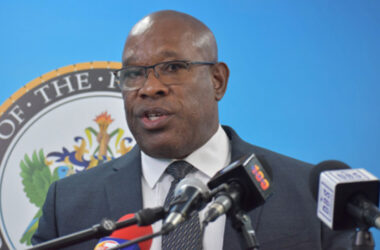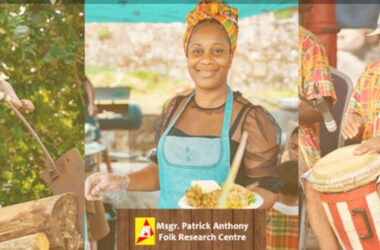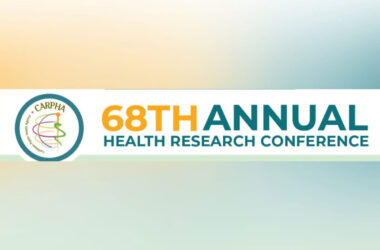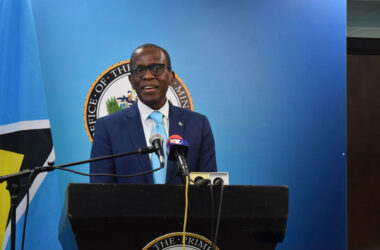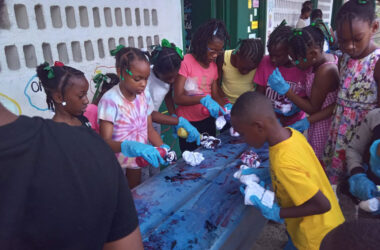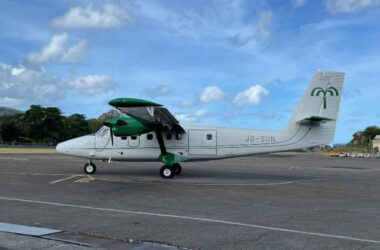Can political leaders from the sub-region and wider regional grouping collaborate to effect measures that are best suited to combat the Covid-19 pandemic?
While Saint Lucia attempts to take precautionary measures to safeguard its citizens and the country as a whole from distresses of the coronavirus; there appears to be some divisive issues at stake amongst regional governments that may pose an affront to a cohesive fight against the virus.
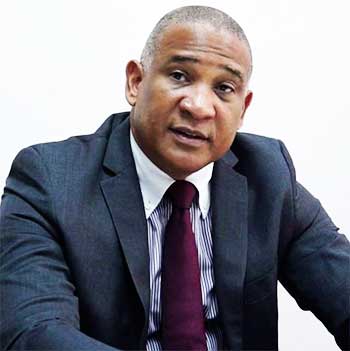
The St Lucia Labour Party (SLP) 1st Deputy Political Leader, Dr. Ernest Hilaire agrees that there is need for better correlations between the regional territories in their efforts to combat COVID-19.
Dr. Hilaire admits that the ‘bickering and pickereing’ and the ‘back and fro’ salvo being thrown out, for instance, in recent times between Barbados, Antigua and Barbuda and St Vincent and the Grenadines (SVG) amongst other regional states “highlights the common approach of CARICOM.”
He added: “At one time we had a very powerful CARICOM and coordination of foreign policy and functional cooperation between CARICOM member states, and we had strong political leadership that really sort to keep the region together and come up with harmonized approaches to the challenges that we face.”
Dr. Hilaire recalled that there was a point in time when there was more stability and regional collaboration on key issues was more evident, but according to him, “we’ve had in recent years a fragmentation of the region like never before.”
He referred to the meeting last year, where US President Donald Trump hosted a ‘handful’ of selected leaders from the region “and the consequences thereafter …and we continue to see fragmentation in the region.”
Said Dr. Hilaire: “Yes …our best approach has to be a harmonized coordinated approach to ensure that as a region we pull our resources and our resolve to overcome the challenges posed by Covid.”
Stating that he has lots of sympathy for this cause, Dr. Hilaire said: “I am a committed (regional) integrationist …and it is sad when I see some of our leaders prepared to split the region for what they see as obtaining favour from Donald Trump.”
Last October, CARICOM Heads of Government took a major step towards resuscitating the COVID19 challenged travel and tourism sectors. An agreement was instituted for a Travel Bubble among CARICOM Member States and Associate Members which meet the agreed criteria.
At a Special Emergency Session last September, the Heads took the decision whereby they acknowledged that the past six months had been a very challenging period globally and regionally, as countries have struggled to cope with the effects of the novel coronavirus. They noted that for CARICOM, it has been particularly difficult, given the high dependence in most of the economies on the travel and tourism sectors.
In agreeing to establish the Bubble, the Heads were guided by a comprehensive report from the Caribbean Public Health Agency (CARPHA), which provided recommendations on how the Bubble would operate, and laid out the eligibility criteria for countries to participate.
The recommendations included that countries would be categorised ranging from those with no cases to those which had low, medium, high and very high risk with respect to the rate of positive cases over a 14-day period; the level of risk would be determined by the amount of positive cases per 100,000 of the population within a 14-day period; only those countries with no cases and those in the low-risk category would be allowed to participate in the Bubble; and CARPHA will assess relevant data to advise on participation in the Bubble.
Heads of Government agreed that travellers from countries within the Bubble would be allowed entry without being subjected to PCR testing prior to arrival and would also not have to undergo quarantine restrictions. Travellers may however be subjected to screening on arrival.
It was agreed that initially, Antigua and Barbuda, Barbados, Dominica, Grenada, Montserrat, St. Kitts and Nevis, Saint Lucia and St. Vincent and the Grenadines will be in the Bubble as they presently meet the criteria. Other Member States and Associate Members would be allowed to participate when they meet the criteria.
However, lately leaders from the sub-region and in particular from Antigua and Barbuda and SVG have been at loggerheads on this issue; and also Barbados has joined in the fray over contentious travel issues between the island states.
Meanwhile, regional tourism stakeholders and political leaders of Caribbean heritage in the marketplace were due to meet this week, to explore ways to help the tourism sector recover from COVID-19.
An online discussion organised by the Caribbean Tourism Organization (CTO), the region’s tourism development agency, conducted a forum that brings together political leaders and influencers in the United States and Britain with tourism interests in the Caribbean, as well as those who do business in the region.
On Wednesday (Jan.13), during the hour-long discussion—in the forum dubbed Touching Base—the panel delved into special programmes or incentives that might exist for the Caribbean. The discussions focused on how Caribbean tourism leaders can engage them to help the industry emerge from COVID-19, how Caribbean tourism leaders can work with the various local and national governments, policymakers and other institutions to build a more sustainable tourism industry and what can be done together through tourism to help improve the lives and livelihoods of the people of the Caribbean and their constituents.




